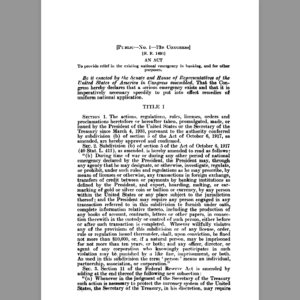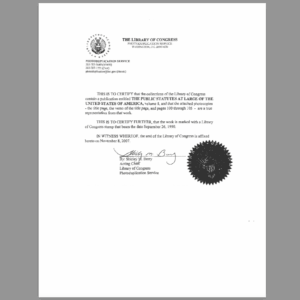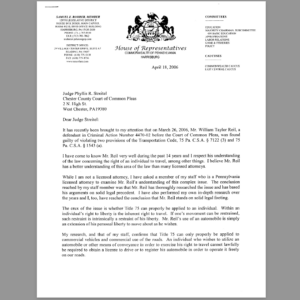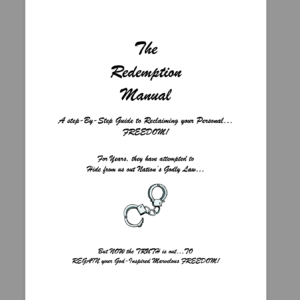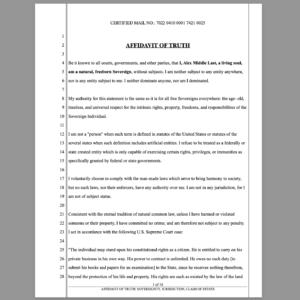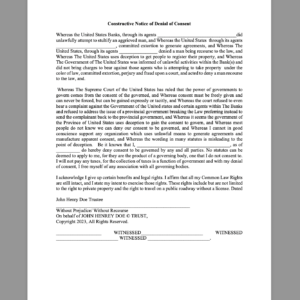⚖️ Opening Foundation: Equity, Contract, and Commercial Law Work Together
In the American legal system, equity and contract law form the backbone of private remedy, while commercial law and the Uniform Commercial Code (UCC) provide the operational mechanisms. Equity ensures fairness where rigid legal rules fail. Contract law governs agreements and performance. Commercial law regulates transactions through negotiable instruments and security interests.
The Uniform Commercial Code (UCC) harmonizes these areas and recognizes that:
-
Agreements can be formed by conduct (UCC § 2-204),
-
Security interests may be perfected and enforced (UCC Article 9),
-
Negotiable instruments discharge obligations (UCC §§ 3-601, 3-603),
-
A Holder in Due Course has superior legal standing (UCC § 3-302),
-
And no party may collect on an obligation already satisfied (UCC § 3-306).
When you properly invoke these remedies, especially as a Secured Party Creditor in equity, you stand on firm legal and lawful ground to stop foreclosure, reclaim title, and demand setoff.
1. Perfect and Assert Your Security Interest
You begin by filing a UCC-1 Financing Statement, naming yourself or your trust as the Secured Party, and listing the mortgage lender or servicer as the Debtor. The collateral should include:
-
The escrow account, servicing rights,
-
All proceeds, instruments, and beneficial interest in the real property.
✅ UCC § 9-315(a)(2) affirms your interest continues even after the collateral (property, note, or escrow) is sold, assigned, or foreclosed upon.
2. Establish Status as Holder in Due Course – UCC § 3-302
As a Secured Party who tendered lawful value, you may claim the status of Holder in Due Course, giving you priority rights to enforce the instrument even if others claim interest.
✅ UCC § 3-302: A Holder in Due Course takes an instrument for value, in good faith, without notice of any defect, and is protected from most defenses or claims.
3. Discharge Through Tender – UCC §§ 3-601 and 3-603
When you tender a valid payment instrument (bond, BOE, private draft), and the servicer:
-
Refuses to accept or dishonors the instrument, or
-
Fails to return it with lawful rejection,
Then the debt is discharged:
✅ UCC § 3-601: Obligation to pay an instrument is discharged upon proper tender or satisfaction.
✅ UCC § 3-603: Refusal of tender discharges the obligation.
4. Assert Claim to the Instrument – UCC § 3-306
You now have legal standing to demand the return of the note, cancellation of the mortgage, or settlement of proceeds:
✅ UCC § 3-306: You may enforce your rights in the instrument, even if the original lender is silent or has transferred servicing rights.
5. Statutory Discharge Authority – 31 U.S.C. § 5118
Your tender is valid and enforceable without the need for gold or Federal Reserve Notes.
✅ 31 U.S.C. § 5118(d)(2) prohibits any contract from requiring payment in gold, silver, or specific tender.
Thus, your private negotiable instrument, bond, or setoff demand satisfies the obligation under law.
✅ Final Demand for Equity and Closure
With all of this:
-
You are the Secured Party with first priority,
-
You are the Holder in Due Course of the instrument,
-
You have made tender, and it was not rebutted,
-
The mortgage is legally and equitably discharged.
🧾 Statement You Could Use:
“I am the Secured Party Creditor and Holder in Due Course of the mortgage and related obligations. I have lawfully tendered discharge and perfected my interest under UCC §§ 3-302, 3-306, 3-601, 3-603, and 9-315. As such, the obligation is fully discharged. I hereby demand cessation of foreclosure, cancellation of any clouded title, return of all proceeds, and reconveyance of title to the rightful owner. Any further collection attempts constitute dishonor, breach of fiduciary duty, and bad faith in equity and commerce.”




